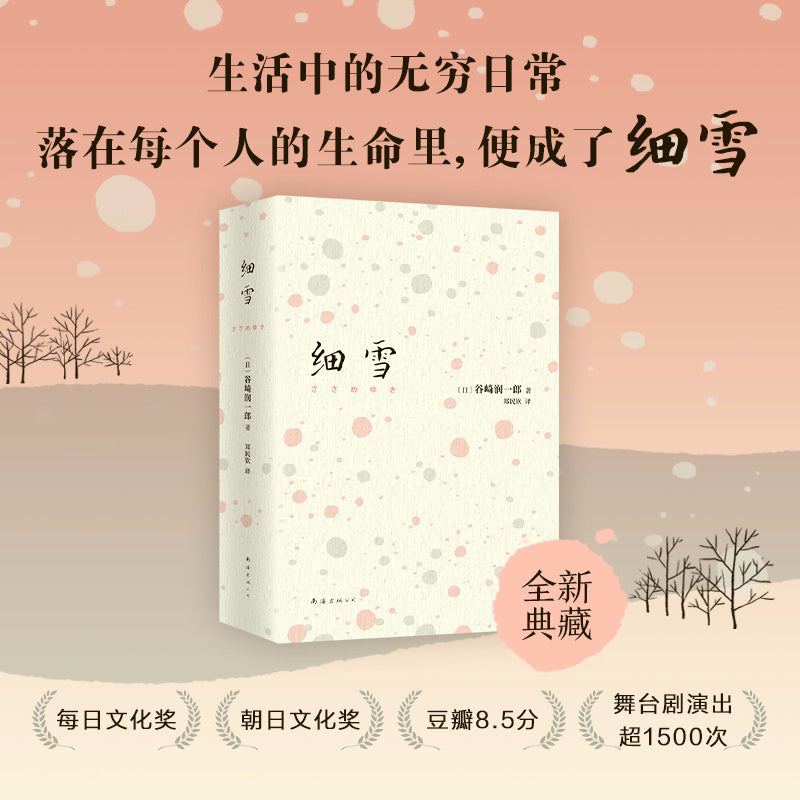WULOLIFE
《细雪》 作者: [日] 谷崎润一郎 出版社: 上海译文出版社 译者: 储元熹 丛书:谷崎润一郎作品系列
《细雪》 作者: [日] 谷崎润一郎 出版社: 上海译文出版社 译者: 储元熹 丛书:谷崎润一郎作品系列
Sale
Sold out
Regular price
€25,00 EUR
Regular price
Sale price
€25,00 EUR
Unit price
per
Tax included.
Shipping calculated at checkout.
Couldn't load pickup availability
Description
内容简介 · · · · · ·
谷崎润一郎著的《细雪》以大阪的名门望族莳冈家四姐妹为主人公,以美丽娴静的三妹雪子的相亲故事为主线,旁及当地的风土人情、社会事件、对外交往等等。作品犹如一幅色彩艳丽、格调高雅的绘画长卷,展现了现代日本关西地区上流社会的生活全貌,被誉为具有古典主义风格的最上乘的风俗小说。
————————————————————————————
《细雪》不仅是谷崎润一郎个人作品中的高峰之作,也是整个昭和文坛的优秀法国文学家萨特盛赞这部作品是“现代日本文学的最高杰作”。
它是一部描述日本中产阶级青年男女之间爱情故事的风俗小说。讲述了大阪的富豪莳冈家族四姐妹的生活故事。故事围绕着二女儿幸子夫妇为操办三女儿雪子和四女儿妙子的婚恋为主要情节展开,最后以雪子相亲成功结束。小说采用以情为主、情与景、情...
作者简介 · · · · · ·
谷崎润一郎(1886—1965),日本唯美派文学代表作家。1910年以《刺青》、《麒麟》登上文坛,代表作有《痴人之爱》、《卐》、《春琴抄》、《人日记》等。 1949
